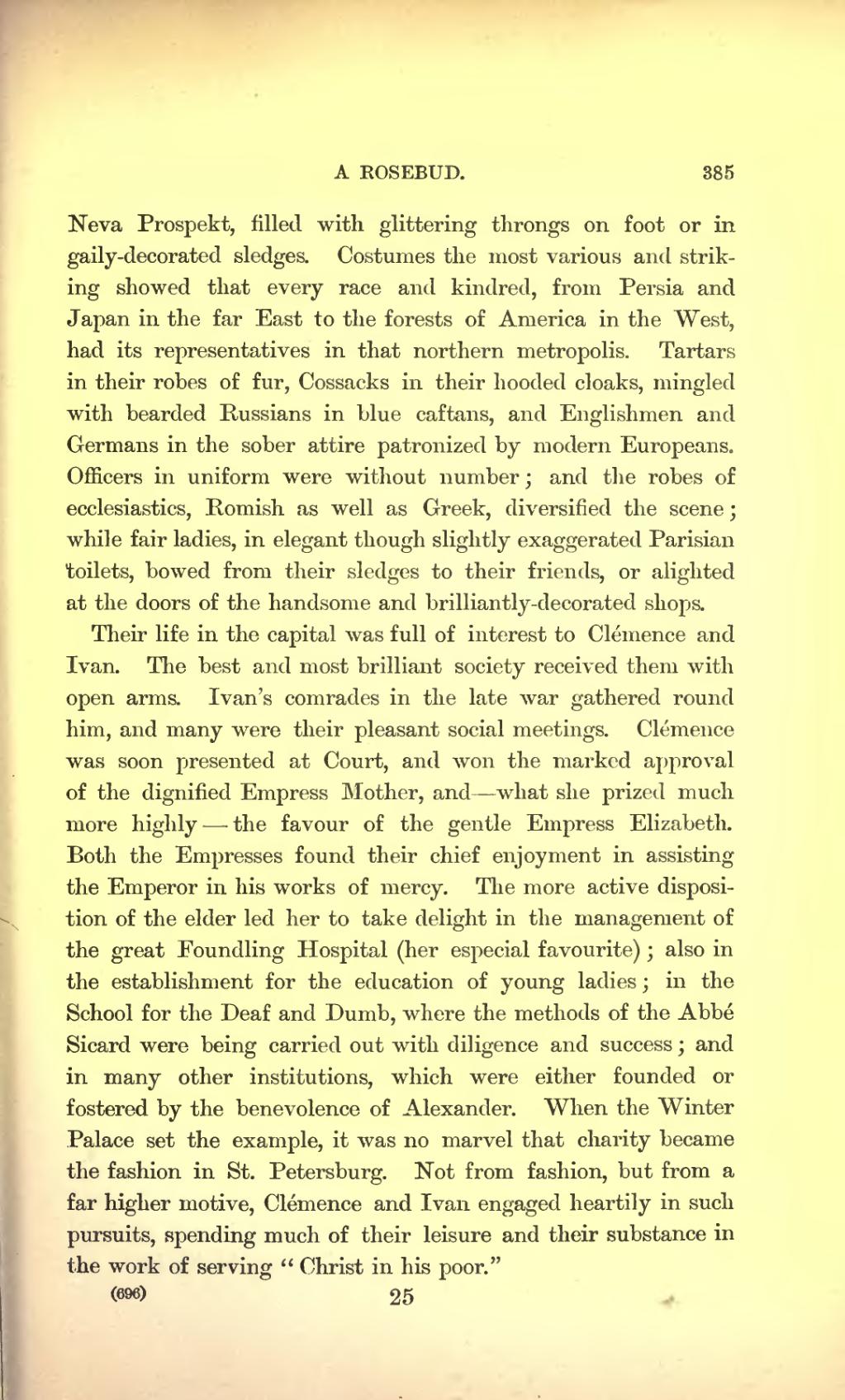Neva Prospekt, filled with glittering throngs on foot or in gaily-decorated sledges. Costumes the most various and striking showed that every race and kindred, from Persia and Japan in the far East to the forests of America in the West, had its representatives in that northern metropolis. Tartars in their robes of fur, Cossacks in their hooded cloaks, mingled with bearded Russians in blue caftans, and Englishmen and Germans in the sober attire patronized by modern Europeans. Officers in uniform were without number; and the robes of ecclesiastics, Romish as well as Greek, diversified the scene; while fair ladies, in elegant though slightly exaggerated Parisian toilets, bowed from their sledges to their friends, or alighted at the doors of the handsome and brilliantly-decorated shops.
Their life in the capital was full of interest to Clémence and Ivan. The best and most brilliant society received them with open arms. Ivan's comrades in the late war gathered round him, and many were their pleasant social meetings. Clémence was soon presented at Court, and won the marked approval of the dignified Empress Mother, and—what she prized much more highly—the favour of the gentle Empress Elizabeth. Both the Empresses found their chief enjoyment in assisting the Emperor in his works of mercy. The more active disposition of the elder led her to take delight in the management of the great Foundling Hospital (her especial favourite); also in the establishment for the education of young ladies; in the School for the Deaf and Dumb, where the methods of the Abbé Sicard were being carried out with diligence and success; and in many other institutions, which were either founded or fostered by the benevolence of Alexander. When the Winter Palace set the example, it was no marvel that charity became the fashion in St. Petersburg. Not from fashion, but from a far higher motive, Clémence and Ivan engaged heartily in such pursuits, spending much of their leisure and their substance in the work of serving "Christ in his poor."
